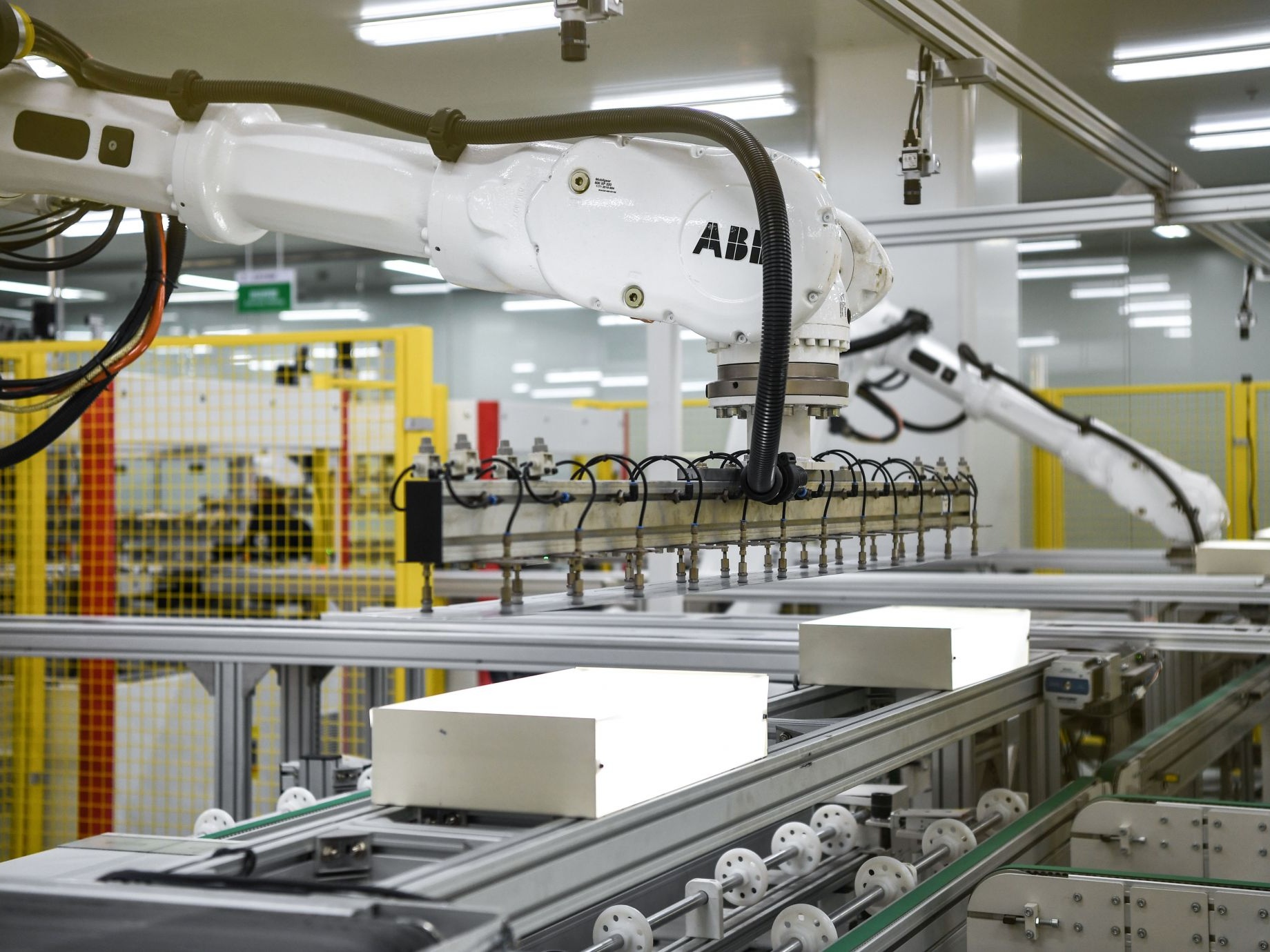German manufacturing orders have plummeted as the coronavirus pandemic takes its toll on industry, government data released on Wednesday shows.
Orders fell by 15.6 per cent in March compared to the previous month, in seasonally and calendar-adjusted terms, the Federal Statistical Office (Destatis) reported.
"This is the largest decline since the beginning of the time series in January 1991," a statement from the office said.
Turnover in the manufacturing sector slumped by 11.5 per cent compared to February, according to the provisional data.
The downturn in industry orders was also felt internationally, with domestic orders down 14.8 per cent and foreign orders falling by 16.1 per cent in March.
The drop was notably sharp in the eurozone, with new orders from the euro area slumping by 17.9 per cent on the previous month, Destatis said.
Manufacturers of capital goods - used to make other goods or services - saw their order books shrink by more than a fifth, while the fall in orders for consumer goods was much smaller, at 1.3 per cent.
The coronavirus pandemic has forced crippling restrictions on industry across the world, with Europe's largest economy being no exception. Global supply chains have also been severely disrupted.
Sectors such as car manufacturing and engineering, both important drivers in Germany's export-focused economy, have been particularly hard hit.
On Wednesday, the German Association of the Automotive Industry (VDA) released sobering figures for April, showing registrations of new cars fell by 61 per cent compared to the same month last year, to just under 121,000.
Car dealers were also hit by anti-coronavirus closures in Germany, but have been allowed to reopen since April 20.
Due to production halts, the number of vehicles running off the assembly lines also dropped in April to 10,900 - a 97-per-cent plunge.
The government data on manufacturing orders confirms industry's worst fears, said Joachim Lang, managing director of the Federation of German Industries (BDI).
"Industry is collapsing at an rate not seen since the reunification of Germany," Lang said.
BDI President Dieter Kempf criticized that a raft of plans to relax restrictions in German public life, agreed on Wednesday between Chancellor Angela Merkel and regional leaders, did not include an exit plan for industry.
He called on federal and state governments to "clarify fundamental issues in a uniform manner so as not to overburden citizens and business."
The manufacturing slump was also spooking economists, with Thomas Gitzel of the VP Bank calling the downturn "epochal."
"Even during the financial crisis, the orders didn't collapse so dramatically," he said.

Notice: No person, organization and/or company shall disseminate or broadcast the above article on Xinhua Silk Road website without prior permission by Xinhua Silk Road.




 A single purchase
A single purchase









